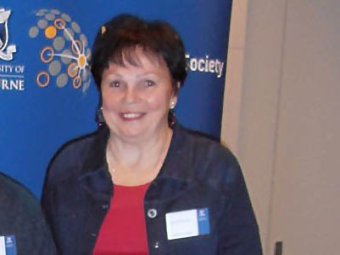Workplaces still see disability as barrier to employment, advocates say
Updated
Nick Schumi has been employed in youth work and the disability sector, but more recently has spent a year looking for a job.
The 31-year-old Adelaide man has cerebral palsy and uses a wheelchair for mobility, but said potential workplaces were sometimes unable to cope.
"I just recently had an experience where I went to an interview with an organisation and I actually couldn't get into the building itself to even have my interview," he said.
"I had to ask the staff to assist me in getting my manual wheelchair up some steps.
"They were extremely happy with how I interviewed and saw my skillset but, unfortunately, that organisation was in the process of moving to a wheelchair-accessible facility."
Mr Schumi did not land the job.
"I can have the best attitude in the whole entire world, but I can't use that to get up some stairs or across a physical barrier," he said.
"I've had to go back onto the disability support pension [but] I am actually in a position where I look forward to paying taxes."
Advocates said Australians with a disability were frequently locked out of the workforce as employers focused on impairments rather than skills and qualifications.
The latest monthly job statistics, for January, showed a drop in Australia's unemployment rate to 5.7 per cent nationally.
South Australian Dignity Party MP Kelly Vincent said the data failed to show the more specific employment picture for minority groups, especially people with disabilities.
"We know that around 50 per cent of people with disabilities are actively in the workforce compared to around 80 per cent of people without, so that gap is really huge," she said.
"People with disabilities actually take fewer sick days than people without disabilities, we're more loyal employees, mainly in part because we face so many barriers to actually getting a job in the first place."
Woman lost job after time off
Adelaide woman Cher Nicholson had a successful career working in senior community health positions until she lost her sight 12 years ago.
 Photo:
Cher Nicholson says she has plenty of qualifications, but faces hurdles to securing long-term jobs. (Supplied by Cher Nicholson)
Photo:
Cher Nicholson says she has plenty of qualifications, but faces hurdles to securing long-term jobs. (Supplied by Cher Nicholson)
"I was heading up coronary care in a big hospital and, when my vision was lost, I took some time off," she said.
"I went to go back to work and they said there wouldn't be anywhere in the hospital I could work.
"I tried to convince them, [saying] 'I've got all these degrees in community health, wouldn't it be great to show someone with a disability in a health promotion role within the hospital?' But no-one thought there was anything I could do."
Ms Nicholson said she had found some supportive workplaces and secured jobs for a couple of years at a time, but there were always challenges.
She started her own business to support people with disabilities, but also wants steady employment again, and often considers whether she should declare her disability.
"People are just looking at what you can't do," she said.
"When I went through a few job agencies they kept saying: 'Why don't you try the traditional things like working on the phone?'
"Many people with a really high skill level go to positions that are really not what they should be going for."
She said it was important that people with disabilities kept improving their work skills and sharing positive stories.
Ms Vincent said a lack of official data on how people with disabilities were faring on the jobs front hindered solving the problem.
"Statistics play an important part in starting the conversation, but we need to find out why so many people with disabilities are so disadvantaged," she said.
"There is government funding to help with any workplace modifications and I think that's widely forgotten.
"It's not our fault — it's not talent or qualifications we might be missing — it's because of those barriers and that stigma."
Topics: disabilities, activism-and-lobbying, states-and-territories, work, community-and-society, government-and-politics, adelaide-5000, sa
First posted








